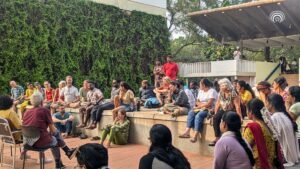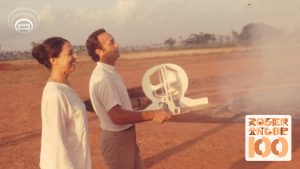Auroville, the visionary international township in Tamil Nadu, India, is known for its unconventional approach to education. In this vibrant community, the pursuit of knowledge is not confined to traditional classroom settings, and the measurement of student growth extends far beyond the limitations of conventional grading systems. This article explores Auroville’s alternative assessment methods, highlighting how the township’s educational institutions focus on nurturing holistic development, character-building, and practical life skills as primary indicators of student success.
The Limitations of Traditional Grading:
Traditional grading systems often rely heavily on letter grades and numerical scores to evaluate a student’s academic performance. While grades can be useful for tracking academic progress, they often fail to capture the full spectrum of a student’s growth. These limitations are what Auroville’s educational system seeks to address.
Auroville’s Holistic Approach:
In Auroville, the approach to assessment aligns with the broader philosophy of integral education. Auroville’s educational institutions recognize that a student’s development encompasses various dimensions, including physical, vital, mental, and spiritual growth. Therefore, the assessment methods are designed to evaluate these aspects rather than just academic achievement.
Assessing Character Development:
Auroville’s schools place a strong emphasis on character development. They recognize the importance of instilling values like empathy, compassion, and integrity in students. Alternative assessment methods include evaluating a student’s ability to exhibit these values in their interactions with peers and the community. Auroville believes that true success is not just measured by academic excellence but by one’s character and ethical choices.
Evaluating Practical Life Skills:
Auroville’s assessment methods also focus on practical life skills. Students are encouraged to take an active role in community activities, which may include tasks related to sustainability, agriculture, or construction. Assessments consider a student’s ability to apply knowledge in real-world scenarios, which is a valuable indicator of their preparedness for life beyond the classroom.
Experiential Learning:
Auroville’s commitment to experiential learning is reflected in its assessment practices. Students learn by doing, engaging their senses, and acquiring knowledge through hands-on experiences. Assessments often involve project-based work and practical demonstrations, allowing students to showcase their skills and creativity in tangible ways.
Self-Reflection and Self-Assessment:
Auroville’s educational institutions encourage self-reflection and self-assessment as integral components of the learning process. Students are encouraged to evaluate their own growth and progress, setting personal goals and assessing their achievement. This self-awareness empowers students to take ownership of their education and personal development.
Beyond Academic Achievement:
While Auroville’s assessment methods do acknowledge academic achievement, they do not prioritize it as the sole measure of success. Instead, the focus is on the individual’s growth as a whole, considering physical, emotional, and practical aspects of development. By doing so, Auroville prepares students for a life that demands more than just academic knowledge.
Cultivating Emotional Intelligence:
Emotional intelligence is a crucial aspect of Auroville’s alternative assessment methods. Students are evaluated on their ability to navigate emotions, understand and manage their feelings, and relate to others with empathy and emotional maturity. This recognition of emotional intelligence as a core competency helps students develop essential life skills.
Community Engagement:
Auroville’s alternative assessment methods encourage students to actively engage with the community. This involvement allows students to learn about cooperation, teamwork, and community building, skills that are vital in the real world. Assessments measure their ability to work with others towards shared goals and contribute positively to the community.
Preparing for the Future:
Auroville’s approach to alternative assessment is closely aligned with the goal of preparing students for the challenges of the future. In a rapidly changing world that values not just what you know but how you apply your knowledge and interact with others, Auroville’s assessment methods equip students with the skills they need to thrive.
Conclusion:
Auroville’s alternative assessment methods represent a departure from traditional grading systems. In place of letter grades and numerical scores, Auroville’s educational institutions prioritize holistic development, character-building, and practical life skills as indicators of student success. By encouraging self-assessment, emphasizing emotional intelligence, and involving students in community engagement, Auroville equips its students with a well-rounded skill set that prepares them for the complexities of the real world. In a time when the limitations of conventional grading are being increasingly recognized, Auroville’s approach to alternative assessment serves as a valuable model for the future of education.



